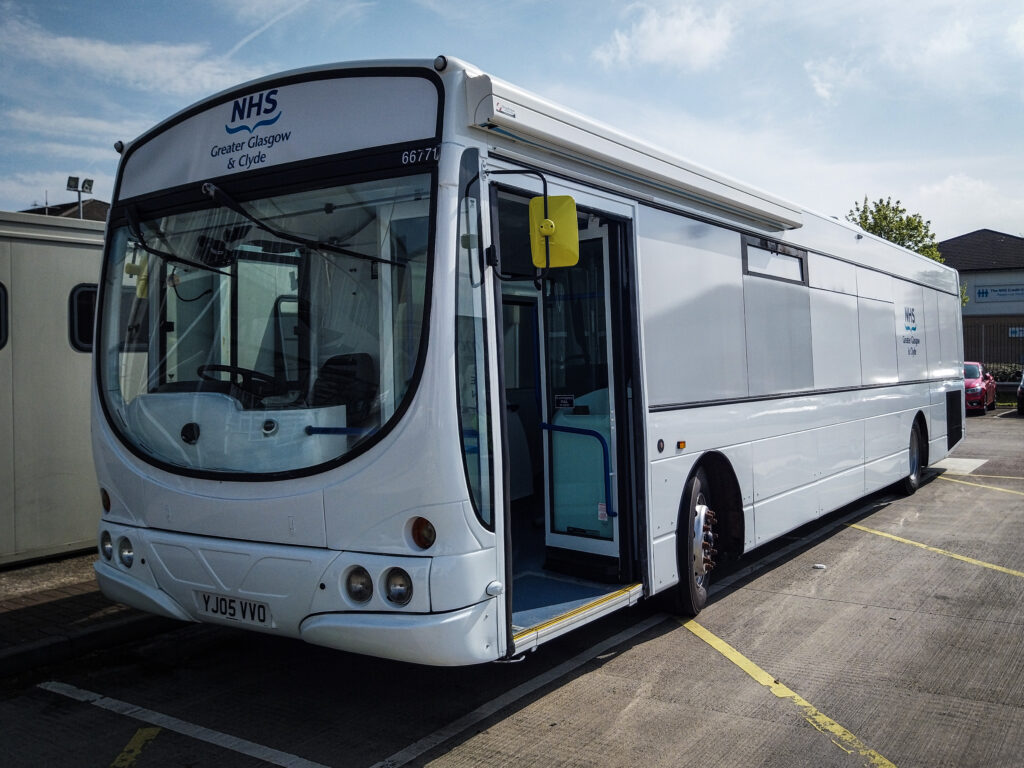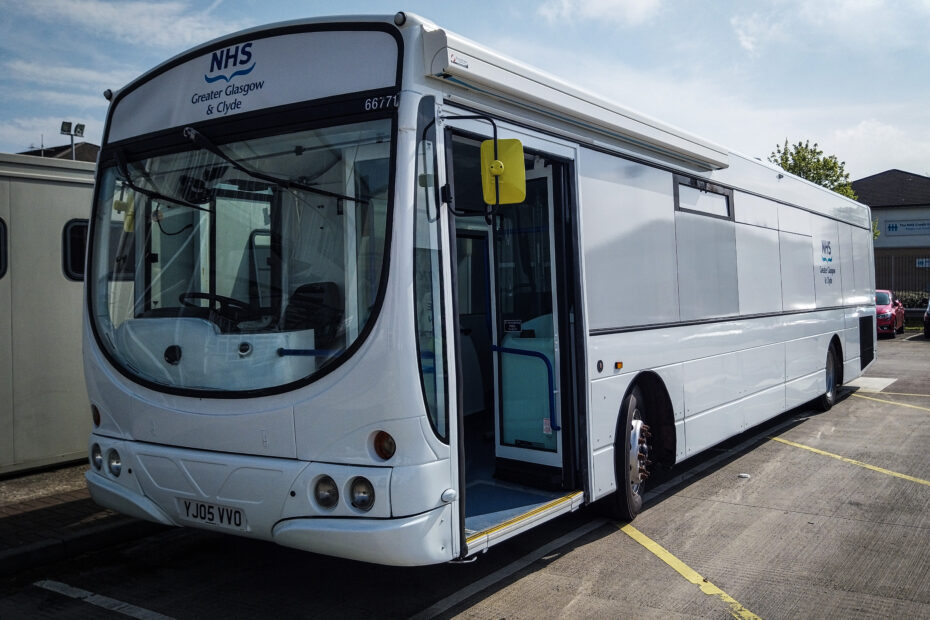
NHS Greater Glasgow and Clyde (NHSGGC) is improving care for people in some of Scotland’s most deprived communities … by converting a bus into a specialist clinic and taking it right to their doorstep.
Next month, the health board launches a new Mobile Clinical Unit providing a range of services including diabetes care for children and adults, gastroenterology and other community-based services, in what could become the model for a range of services across NHSGGC, and even nationwide.
The bus – a former First Glasgow single-decker – has been kitted out in NHSGGC livery and contains a clinical area, waiting area, kitchen and communal area for staff. It boasts a flat-screen TV, WiFi and hi-tech ambient strip lighting to provide a welcoming, comfortable area in which to provide care. There will even be toys to keep young patients relaxed and entertained.
Rajeeb Rashid, Consultant Paediatric Diabetologist with NHSGGC, is one of the team who has designed and commissioned the new clinic. He said: “We’re very proud of this initiative, and the mobile paediatric diabetes clinic will be one of the first in the UK.
“For people living in areas of high deprivation, the prospect of taking a loved one to a hospital appointment is a daunting one – not least because of the financial cost of, for example, taking time away from work and paying for travel to and from the hospital
“The bus allows us to take the care right to our patients, and that’s a huge win for everybody. For patients and families it helps to remove barriers to care, in turn reducing health inequalities, while for NHSGGC it reduces the number of non-attendances at appointments and allows us to see more patients more cost-effectively.
“On top of that, it’s also a sustainable model that helps meet NHSGGC’s environmental goals.”
Once it’s up and running, the bus will be on the road every day, setting up at health centres and other public spaces, and potentially at public events, to provide specialist care to hundreds of patients every year.
But, for Rajeeb and the rest of the team, providing medical care is only the start. He said: “We’re hoping the bus will provide a one-stop shop to support entire families.
“Our TV screens can be used to share public health messages and advice on everything from benefits to healthy living, and we’re planning to use the kitchen as a ‘show and tell’ space to help educate families on eating healthily on a budget.”
As well as diabetes care, it is envisaged that the bus will be used by the diabetes outreach team to support individuals in a homeless environment, gastroenterology services, and by staff within Renfrewshire Health and Social Care Partnership.
Its introduction is being treated by NHSGGC as a test of change and if successful the teams involved will look to secure ongoing support to make this approach part of a routine care model.
Professor Brian Kennon, Consultant in Diabetes and Endocrinology at NHSGGC, and National Lead for Diabetes, said: “NHS Greater Glasgow and Clyde is committed to providing the best possible care to all our communities, and sometimes that means being creative in how we provide that care.
“By converting a bus and going right to the people we care for, we are providing valuable help to families who might otherwise struggle to access our services.
“This project has been a real team effort, and I would to thank people from across NHSGGC, in particular Paul Reid, Head of Transport and Travel, and colleagues in Renfrewshire HSCP for their hard work and co-operation in getting it on the road. I look forward to seeing its progress as there is real potential for a new model of care here.”
The NHSGGC team behind the bus is working with Diabetes Scotland, and the charity is keen to support the clinic and monitor its potential as a possible model of care nationwide.

